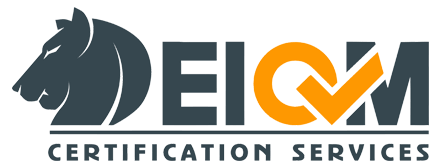ISO 17060 is a crucial compliance assessment standard that plays a significant role in ensuring quality, reliability, and consistency in various industries. This standard provides guidelines and requirements for organizations to assess their compliance with regulatory and customer requirements effectively. In this article, we will explore the intricacies of This standard, its importance, key components, benefits, challenges, and real-world applications.
Introduction
ISO 17060, formally known as “Conformity assessment – Requirements for bodies certifying products, processes, and services,” is an international standard developed by the International Organization for Standardization (ISO). It serves as a framework for organizations seeking certification to demonstrate their conformity with established quality management systems and regulatory frameworks.
Importance of Compliance Assessment Standards
Compliance assessment standards like ISO 17060 are essential for ensuring consistency, reliability, and safety across various industries. They provide a structured approach for organizations to assess and demonstrate their compliance with regulatory requirements, industry standards, and customer expectations. Compliance assessment standards also facilitate international trade by harmonizing certification processes and promoting mutual recognition among different countries.
History and Development of ISO 17060
Origins of ISO 17060
This standard traces its origins back to the need for standardized conformity assessment processes in diverse industries. The development of this standard was driven by the increasing globalization of markets, which necessitated uniformity in certification practices to enhance trust and facilitate trade.
Evolution and Updates
Since its initial publication, ISO 17060 has undergone several revisions and updates to address emerging trends, technological advancements, and changing regulatory landscapes. These revisions aim to ensure that the standard remains relevant and effective in meeting the evolving needs of stakeholders across various sectors.
Key Components of ISO 17060
This standard comprises several essential components that outline the requirements and guidelines for conformity assessment bodies. These components include:
Scope and Objectives
The standard defines the scope of certification activities covered, including the types of products, processes, or services subject to assessment. It also outlines the objectives of certification, such as ensuring product quality, enhancing customer satisfaction, and facilitating market access.
Requirements and Guidelines
ISO 17060 specifies the requirements and guidelines for the establishment, implementation, and maintenance of conformity assessment processes. This includes criteria for competence, impartiality, consistency, and confidentiality, among others.
Benefits of ISO 17060 Compliance
Compliance with This standard offers numerous benefits for organizations, including:
- Enhanced credibility and reputation
- Improved product quality and reliability
- Increased customer confidence and satisfaction
- Facilitated access to international markets
- Streamlined regulatory compliance processes
Implementing This standard in Different Industries
ISO 17060 is applicable across various industries, including manufacturing, healthcare, construction, transportation, and information technology. Organizations in these sectors can leverage the standard to establish robust conformity assessment systems tailored to their specific needs and requirements.
Challenges and Limitations
While ISO 17060 offers many advantages, its implementation can pose challenges for organizations, such as:
- Resource constraints
- Complex regulatory environments
- Resistance to change
- Lack of awareness or understanding
Case Studies Demonstrating ISO 17060 Compliance
Several real-world examples illustrate the successful implementation of This standard and its positive impact on organizations. These case studies highlight the diverse applications of the standard across different sectors and regions, showcasing its effectiveness in ensuring compliance and driving business excellence.
Future Trends and Advancements in Compliance Assessment
Looking ahead, the future of compliance assessment is likely to be shaped by technological innovations, such as artificial intelligence, blockchain, and Internet of Things (IoT). These advancements have the potential to streamline certification processes, enhance transparency, and improve the reliability of conformity assessments.
Conclusion
ISO 17060 plays a crucial role in ensuring conformity assessment across various industries, providing organizations with a framework to demonstrate compliance with regulatory and customer requirements. By adhering to this standard, businesses can enhance their credibility, improve product quality, and gain access to new markets, ultimately driving growth and competitiveness in a globalized economy.

